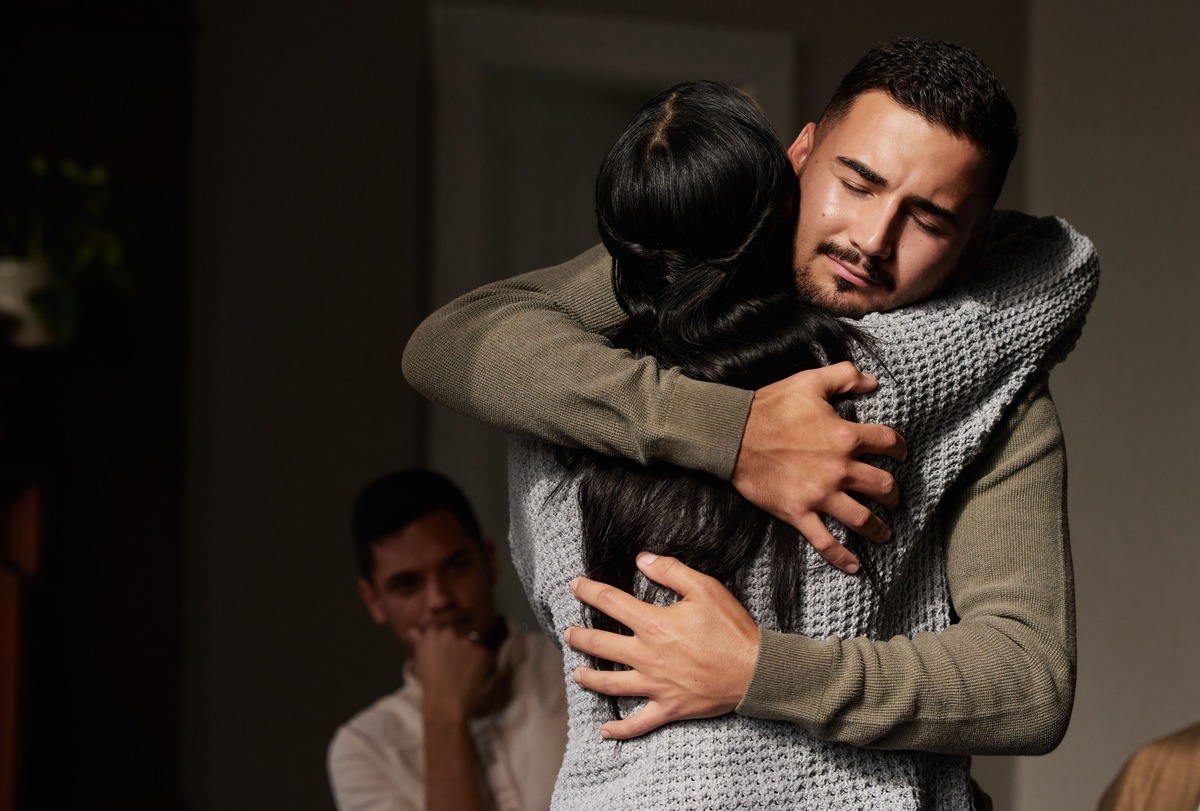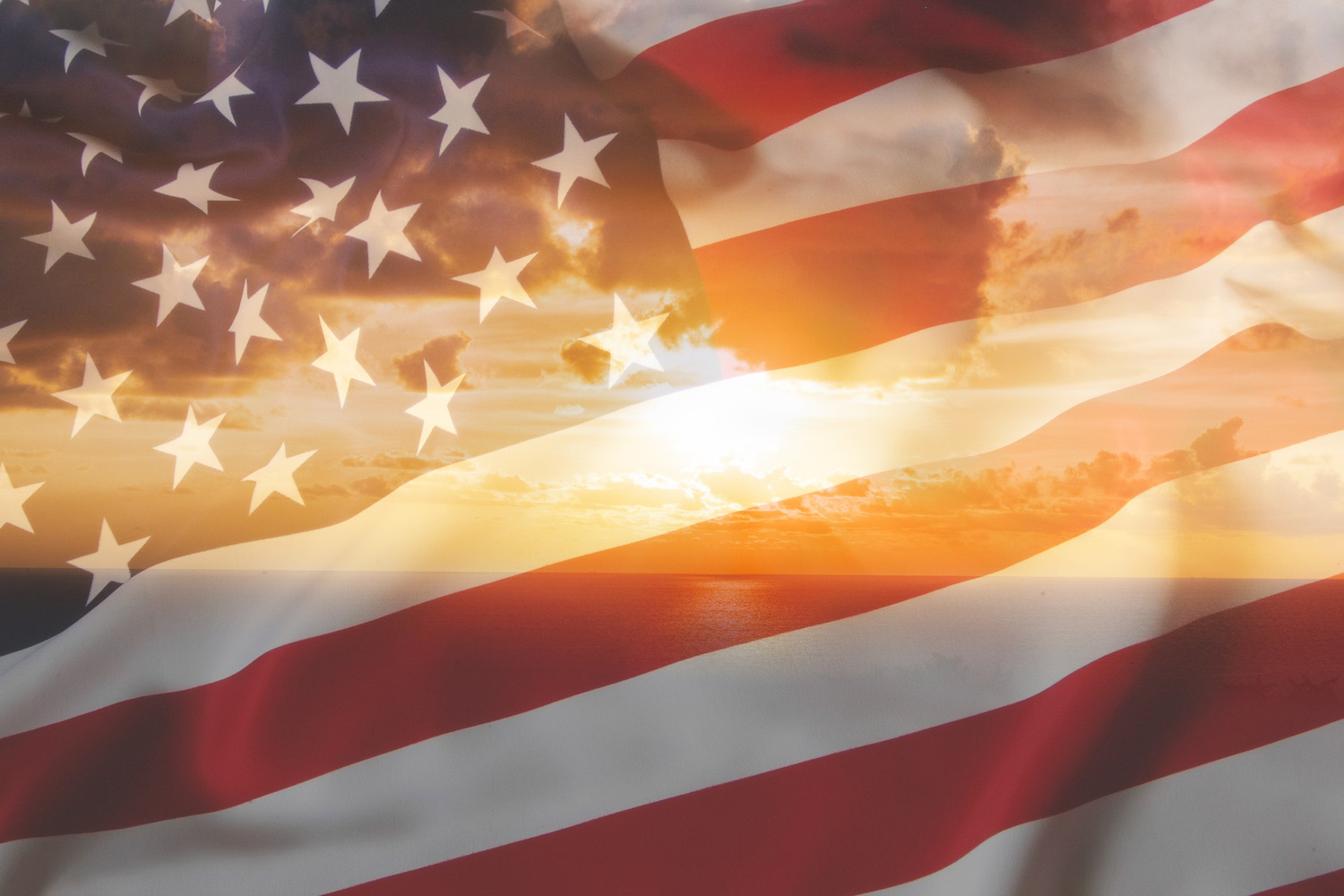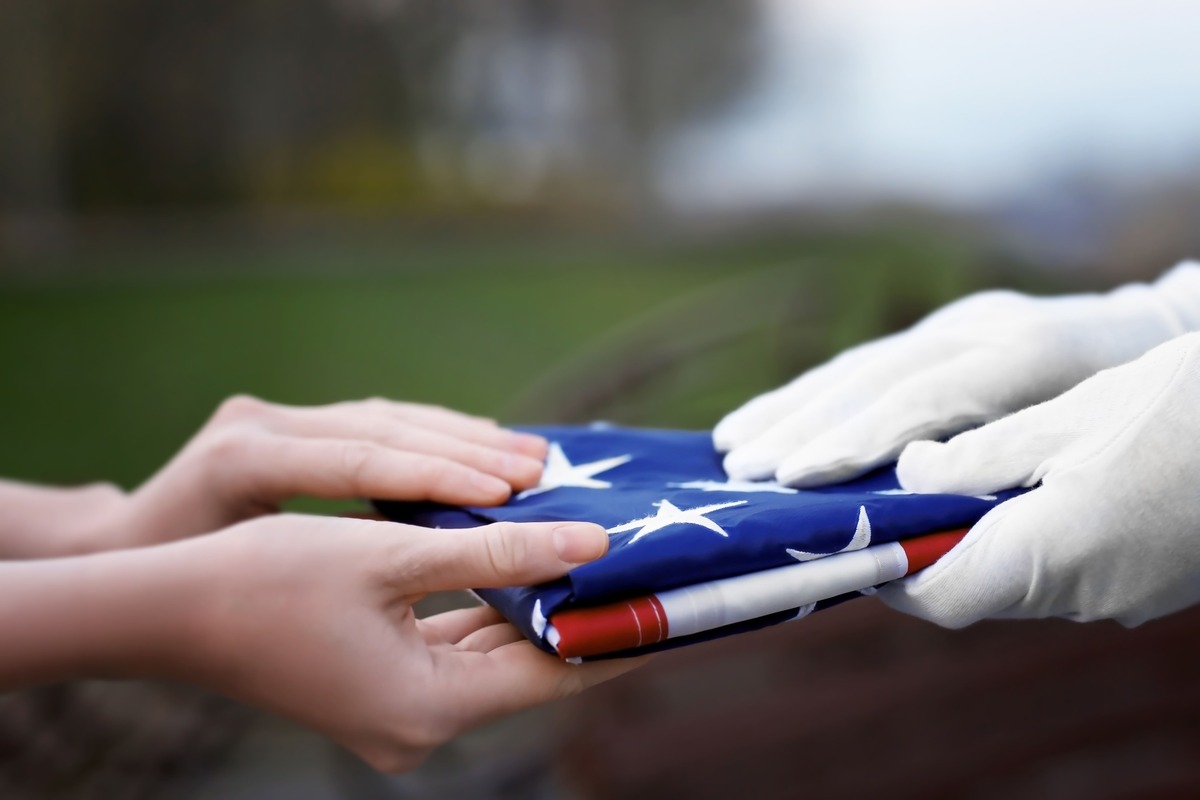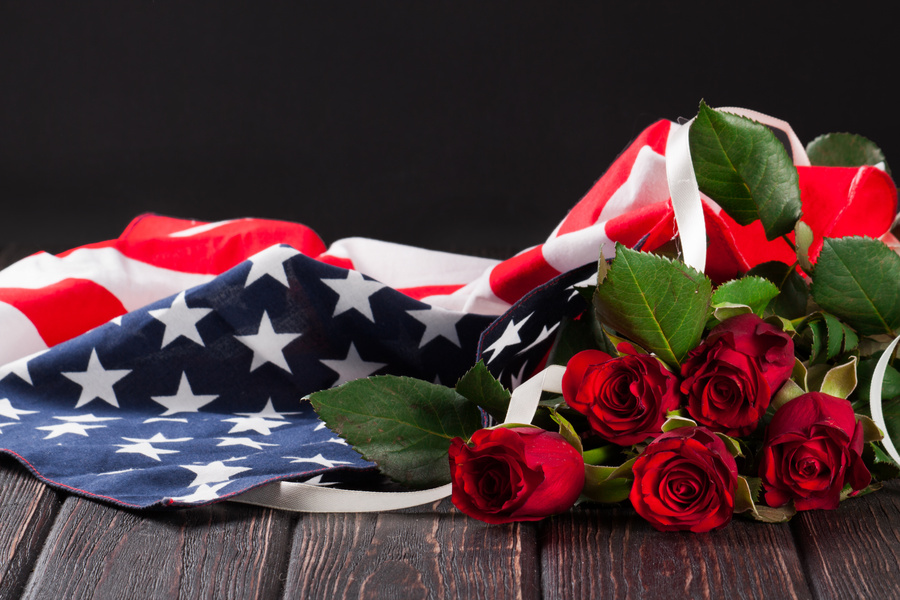


Active duty service members and Selected Reserve members are typically eligible.


The Department of Veterans Affairs (VA) provides a United States flag at no cost to the next-of-kin of a deceased veteran. The flag is provided as a keepsake designed to honor the memory of the veteran. It is typically used during the funeral or memorial service during the flag folding and presentation ceremony detailed above before being presented to the family or next-of-kin.
Family members or close friends of the veteran may apply for a burial flag if the veteran meets one of the following eligibility requirements:
The Department of Veterans Affairs (VA) provides a United States flag at no cost to the next-of-kin of a deceased veteran. The flag is provided as a keepsake designed to honor the memory of the veteran. It is typically used during the funeral or memorial service during the flag folding and presentation ceremony detailed above before being presented to the family or next-of-kin.
Family members or close friends of the veteran may apply for a burial flag if the veteran meets one of the following eligibility requirements:
